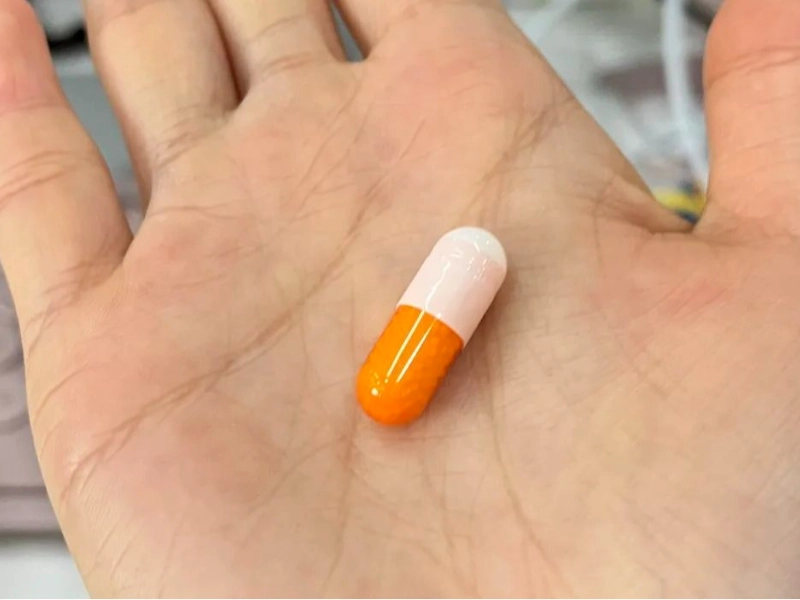Advertisement
4. Over-the-Counter Solutions: Effective Products for Fading Age Spots

When natural treatments fall short, over-the-counter (OTC) medicines might provide a more strong fix for age spots. Many times, these solutions have active components meant especially to address hyperpigmentation and even balance skin tone. Although they could act faster than natural therapies, it's crucial to follow instructions exactly and be patient since effects might take many weeks to months to show. Here is a thorough review of some of the best over-the-counter treatments for fading age spots:
1. Often regarded as the gold standard in over-the-counter hyperpigmentation treatments, hydroquinone reduces melanin synthesis. Search for items including 2% hydroquinone, the highest concentration without a prescription. Apply it once or twice daily straight to the age spots; be advised that some people may experience skin irritation or further discoloration over long term use. Under the direction of a dermatologist, hydroquinone is best used; pauses from treatment every few months are advised.
2. Strong antioxidant vitamin C serums can help remove dark spots and lighten the skin. It targets the enzyme tyrosinase, which generates melanin, therefore blocking it. Search for serums containing L-ascorbic acid, the most potent form of vitamin C, in 10–20% dosages Apply first thing in the morning before sunscreen to further guard against UV damage.
3. Over-the-counter retinol treatments can help age spots vanish by raising cell turnover and blocking melanin synthesis. Start at 0.01–0.03% then progressively raise as your skin develops tolerance. Apply at night; retinoids increase the sensitivity of your skin to sunlight. Be patient; it takes many months to notice appreciable changes.
4. Products including glycolic acid or lactic acid can help exfoliate the skin, so eliminating dead cells and maybe decreasing age spots over time. For home use, search for items with concentrations between 5 and 10%. Start with once or twice weekly applications and raise frequency as tolerated.
5. Derived from fungus, another substance that reduces melanin generation is kojic acid. It's sometimes seen in concert with other lightening products such as vitamin C or hydroquinone. Look for products with 1-4% kojic acid and treat afflicted areas once or twice daily.
6. Known by many as vitamin B3, niacinamide can help stop melanin from being transferred to skin cells, so perhaps erasing age spots over time. Found in doses of 2–5% in several serums and moisturisers, it is mild enough for regular usage.
7.Natural occurring and with anti-inflammatory and skin-lightening effects is azelaic acid. It is sold over-the-counter in strengths up to 10%. For optimum effects, apply twice daily to afflicted areas.
8. Products include licorice extract—especially the molecule glabridin—may assist to lower melanin synthesis and inhibit tyrosinase. For maximum impact, it's sometimes used with other lightening agents.
9. Usually regarded as milder on the skin, arbutin is a natural derivative of hydroquinone that functions similarly to stop melanin synthesis. For the most powerful effects, search for items including alpha-arbutin.
10. Although more often found in prescription drugs, certain OTC versions now contain tranexamic acid, which can help remove dark spots and lower melanin synthesis. It's sometimes used in concert with other lightening agents.
Using these OTC products calls for a few basic rules:
Before introducing a new product to your face, always do a patch test to look for possible allergic responses or irritation.
Start one product at a time to see which components minimise irritation risk and best fit your skin.
Apply consistently using the product directions exactly.
Wear sunscreen carefully since several of these components could raise sun sensitivity.
Most products need at least 4-8 weeks of constant use before changes are evident; overnight results are not expected.
See a dermatologist before beginning any new skincare programme if you have sensitive skin or a tendency towards adverse reactions.
Although many people find these over-the-counter treatments useful, those with obstinate age spots or more severe hyperpigmentation may want to discuss prescription-strength treatments or in-office procedures for more dramatic improvements.
Recall that consistency and patience are the secret ingredients for success with any skincare product. Combining these OTC treatments with appropriate sun protection and a good skincare regimen will help you to have a more even, brilliant complexion and over time help to lessen the appearance of age spots.
